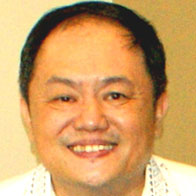 We are a democracy and the right of every citizen to have a say in the kind of leadership and future for our country is fundamental and no one should even think they can deny us this right to vote or mess around with our votes.
We are a democracy and the right of every citizen to have a say in the kind of leadership and future for our country is fundamental and no one should even think they can deny us this right to vote or mess around with our votes.
Yet there are around four million Malaysians over the age of 21 who are not registered as voters and every year, around 450,000 turn 21 and become eligible.
The rate of new voter registration as reported by Minister in the Prime Minister’s Department Datuk Seri Azalina Othman Said was 373,467 from May 2013 to May 2015.
Thus, the average per year is just under 125,000, leaving 325,000 new eligible voters unregistered each year.
At the current rate of new voter registration, we will have at least five million eligible voters “unregistered”, out of around 18 to 19 million voters by the 14th general election.
Apathy of these eligible voters themselves because of ignorance of their rights or just a lack of faith in the electoral process itself could be one of the reasons.
Low voter turnout at elections is a good indicator of political apathy but in Malaysia, we have seen comparatively high average turnout rate of 78% in the last three general elections, with the last one reaching 85%.
Apathy cannot be the main reason people are not registering as voters.
In my opinion, the reason we still have such high unregistered number of voters is the process itself.
The Election Commission (EC), which is responsible for registering new voters, has made the process unnecessarily cumbersome by restricting the channels for people to register.
Up until the last general election in 2013, the channel that yielded the highest number of registration was through the assistant registrar officers (ARO) from political parties.
Since then, the EC has stopped the appointment of AROs from political parties, alleging abuse of the process.
One has to question whether there is a sinister intention in restricting the channels to voter registration.
Does such restriction mean that the EC can then selectively register voters who fit a certain profile or selectively appoint pro-government NGOs or propaganda government units like Jasa?
According to recent findings from the Malaysian Electoral Roll Analysis Project (MERAP), voter registration from the first quarter of 2014 in 13 marginal federal seats was skewed towards a certain ethnic group.
The 13 marginal seats are from Pahang, Selangor, Johor, Perak and Kuala Lumpur.
Selective registration of voters by ethnicity or likely voting preference in targeted constituencies can have a dramatic impact when you consider that there are 38 federal seats won with fewer than 2,000 votes and 77 that are won with fewer than 5,000 votes in GE13.
Coupled with the inconvenience of voter registration and the uncertainty of success in registering, we have a possible plot of people exploiting Section 15 of the Elections (Registration of Electors) Regulations 2002 to lodge spurious objections to new voters.
After a person has registered as a new voter or even change their voting constituencies, their names would be displayed for one month at post offices and EC offices.
During this period, the public can view and object to the names if they can prove that the voters do not exist.
In cases uncovered in Selangor, the objectors just stated that the voters cannot be traced in their objection forms.
The EC would then send a letter to the voter concerned to appear at its office at a specified date and if they fail to appear, his name will be struck off the list. Many couldn’t make their appointments and were delisted.
Judging by the profile of those being objected, it is reasonable to believe that there is a concerted plot to reduce the number of voters in certain constituencies.
The EC either has to deal with such abuses or stand accused as a conspirator.
In a recent interview with Utusan Malaysia, EC chairman Tan Sri Abdul Aziz Mohd Yusof said that he couldn’t understand why Malaysian youth prefer to take part in street demonstrations than register as voters.
Perhaps the answer is that they have lost confidence in the EC and the electoral process.
The Election Integrity Project by Harvard and Sydney Universities in its report concluded that based on the last general election, Malaysia has one of the worst election laws and delineation of election boundaries in the world.
The impact of a loss of confidence in our electoral system goes beyond street demonstrations as said by Aziz but it has huge political, social and economic cost.
As citizens who still believe in the right to vote and the sanctity of each vote, we have to think of ways to get people to register as voters for the next election and to thwart any attempts to devalue or cheat us of our votes.
Don’t play-play, there is a limit to the rakyat’s patience. – December 21, 2015.
* This is the personal opinion of the writer or publication and does not necessarily represent the views of The Malaysian Insider.


Comments
Please refrain from nicknames or comments of a racist, sexist, personal, vulgar or derogatory nature, or you may risk being blocked from commenting in our website. We encourage commenters to use their real names as their username. As comments are moderated, they may not appear immediately or even on the same day you posted them. We also reserve the right to delete off-topic comments